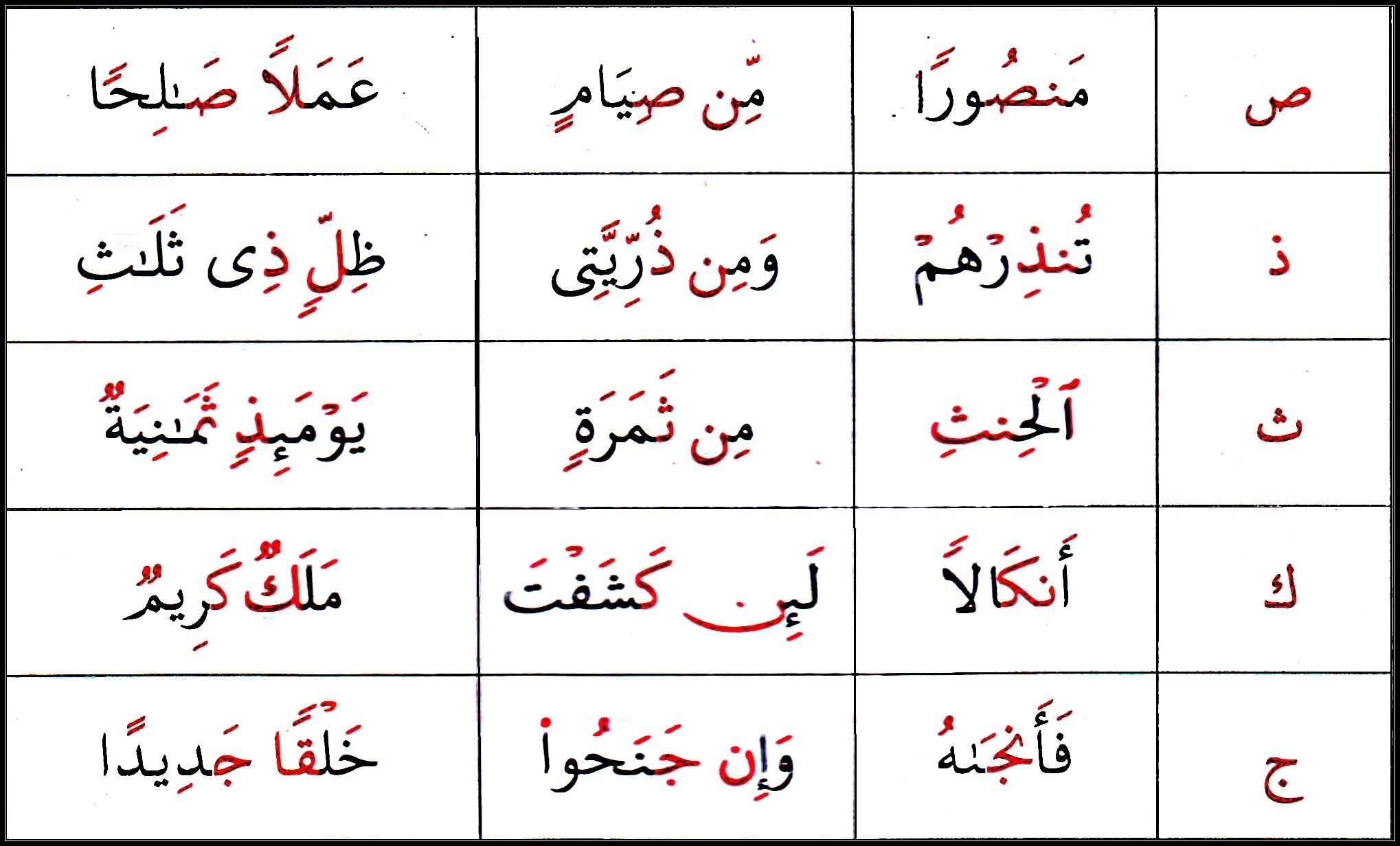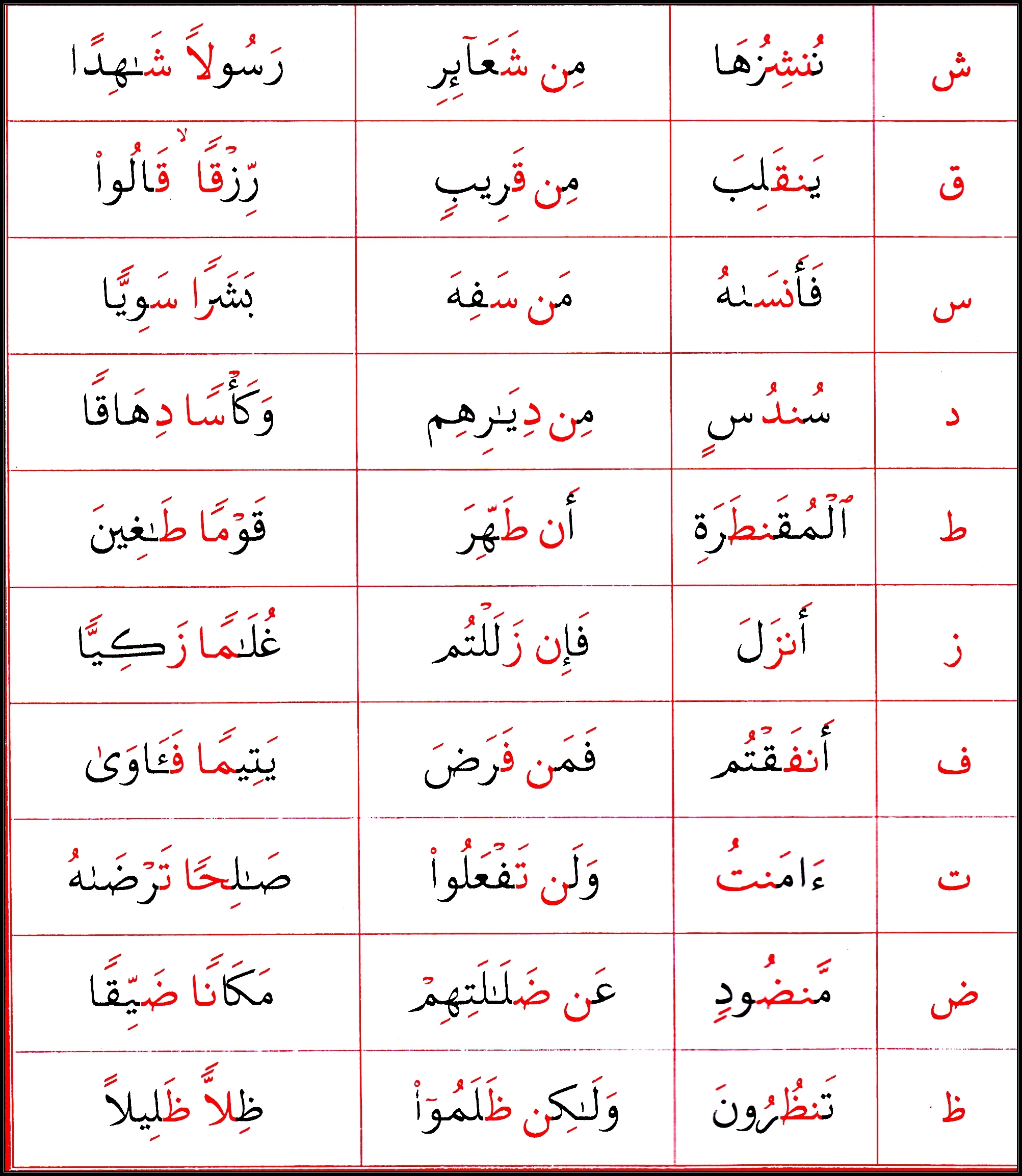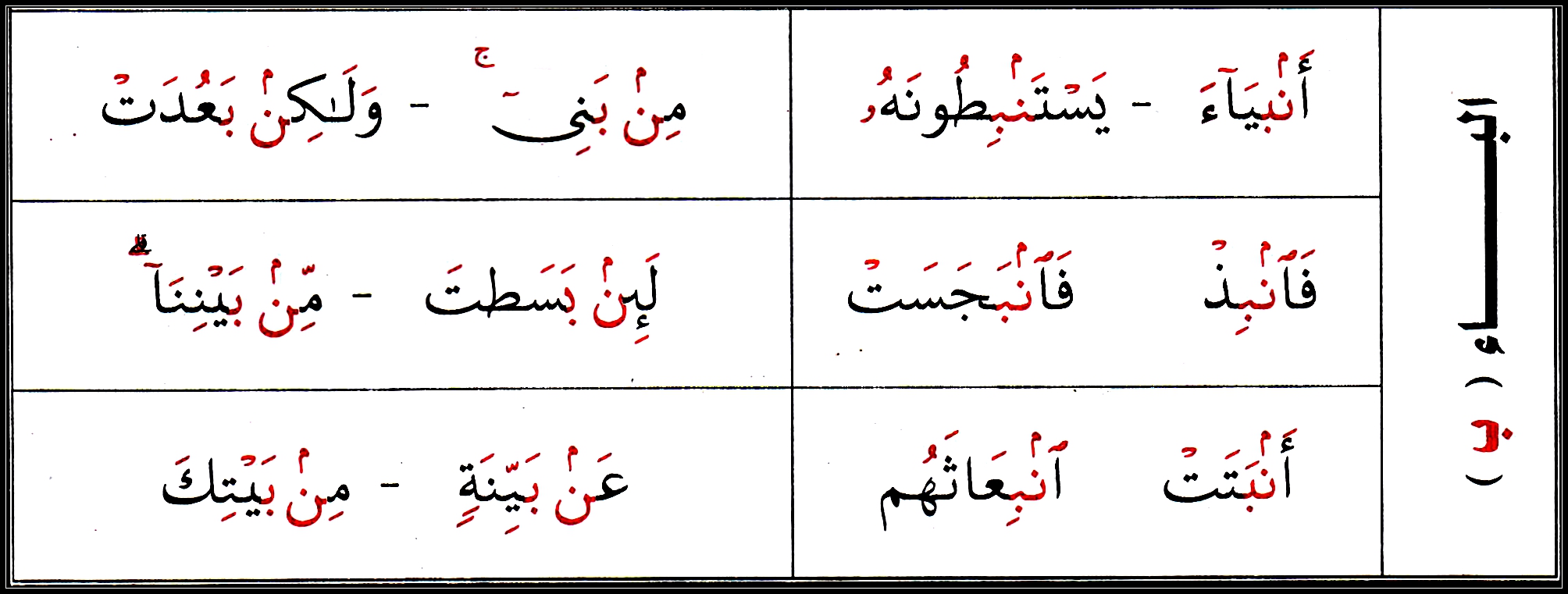Middle Finger

1. Ith’har Halqi [Al-Ith’har] الإِظْهَار
The Huroof Halaqiyya or Ith’har letters are: (ء – هـ – ع – ح – غ – خ)
هَاءٌ - هَمْزٌ – عَيْنٌ حَاءٌ – غَيْنٌ خَاءٌ


2 – [Al-Idghaam الإِدْغَام]
Letters of Idghaam:
ي , ر , م , ل , و , ن
and they are collected in the word:
يَرْمَلُون
2.1 – Idghaam Bi-Ghunnah [Al-Idghaam الإِدْغَام]
It has four letters (ي , ن , م , و (يَنْمُو.


2.2 – Idghaam Bil-Ghunnah [Al-Idghaam الإِدْغَام]
ل , ر


3. Ikhfa Haqiqi [Al-Ikhfaa’ الإِخْفَاء]
Letters of Ikhfaa’: ت، ث، ج، د، ذ، ز، س، ش، ص، ض، ط، ظ، ف، ق، ك
صِفْ ذَا ثَنَا كَمْ جَادَ شَخْصٌ قَدْ سَمَا
دُمْ طَيِّبًا زِدْ فِي تُقًى ضَعْ ظَالِمَا


4. Al-Iqlaab الإِقْلاَب
Letter of Iqlaab: ب .


Last updated